 Leadership Role in Preventing Burnout
Leadership Role in Preventing Burnout
Dr. Kelly Trevino OTR/L, OTD
 Leadership Role in Preventing Burnout
Leadership Role in Preventing BurnoutDr. Kelly Trevino OTR/L, OTD
 Passing the Baton of SIS Leadership of the FOTA Practice Standing Committee
Passing the Baton of SIS Leadership of the FOTA Practice Standing CommitteeRicardo C. Carrásco, PhD, OTR/L, FAOTA
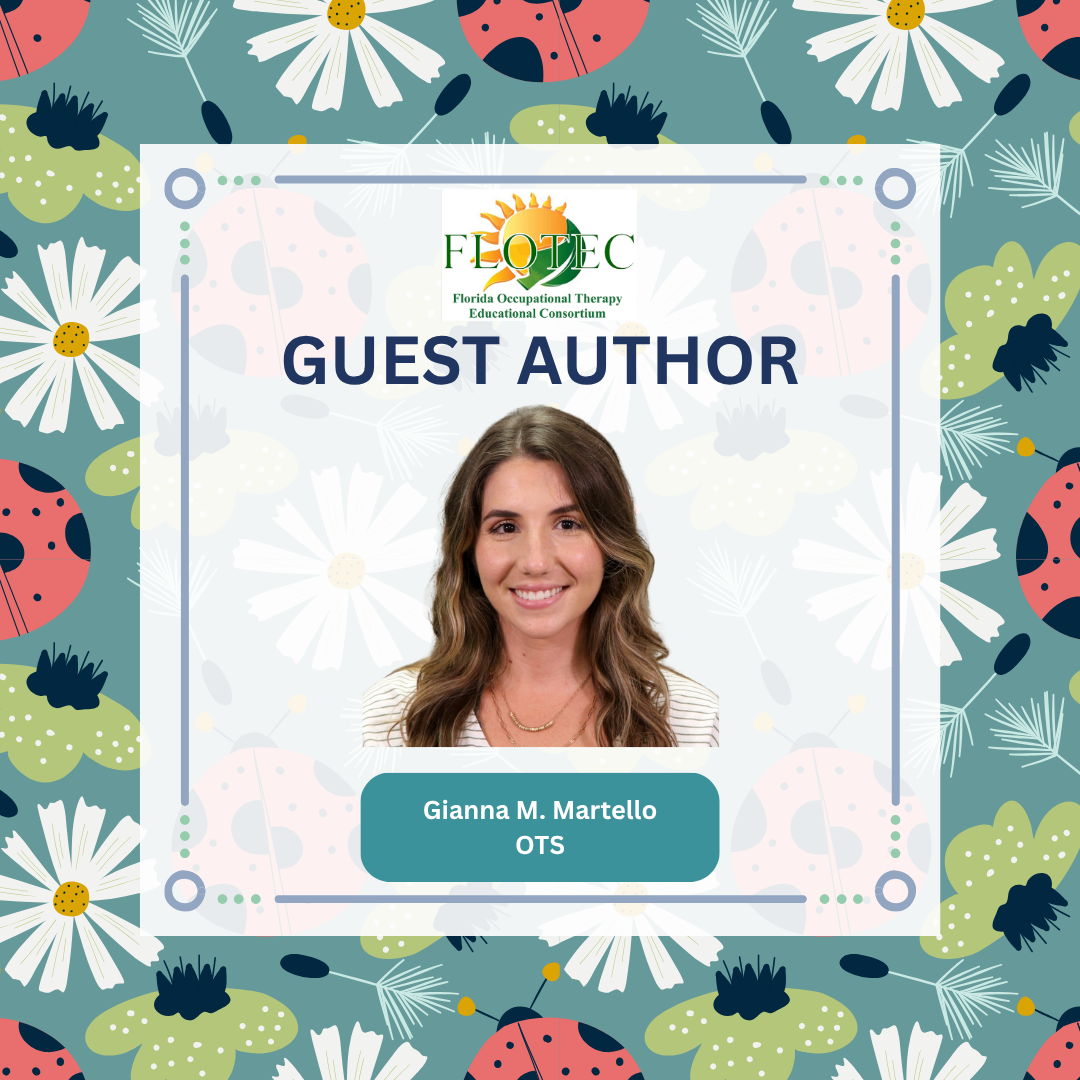 An Online Hub for Fieldwork Educators and Capstone Mentors: The Florida Occupational Therapy Educational Consortium Website
An Online Hub for Fieldwork Educators and Capstone Mentors: The Florida Occupational Therapy Educational Consortium Website
 Revolutionizing Rehabilitation: How Artificial Intelligence is Shaping the Future of Occupational Therapy
Revolutionizing Rehabilitation: How Artificial Intelligence is Shaping the Future of Occupational Therapy Use of ChatGPT and artificial intelligence (AI) in the Home and Community Health therapy setting
Use of ChatGPT and artificial intelligence (AI) in the Home and Community Health therapy settingNguyen, B. (2022, Dec 5). A new AI chatbot is getting buzz for being able to have intelligent-sounding conversations, write music and even code. Business Insider.https://www.businessinsider.com/chatgpt-new-ai-chatbot-conversation-with-questions-answers-examples-2022-12
Sallam, M. (2023). ChatGPT utility in healthcare education, research, and practice: Systematic review on the promising perspectives and valid concerns. Healthcare 2023, 11, 1–20.http://doi.org/10.3390/healthcare11060887
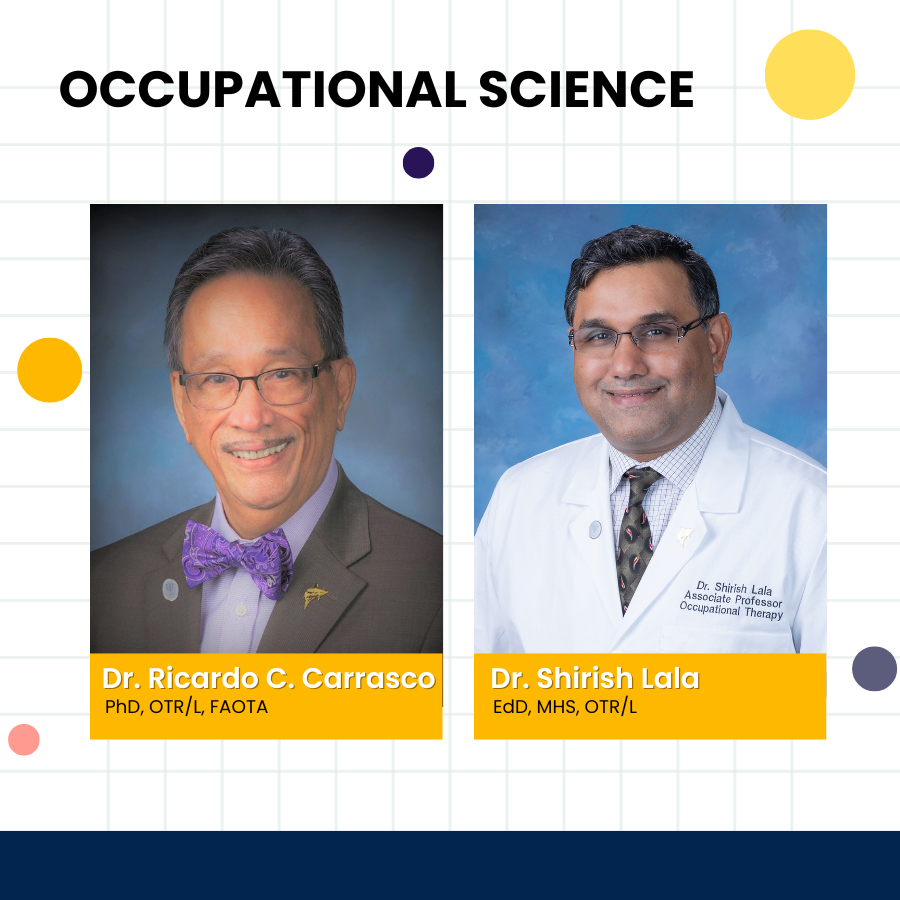 Occupational Disruption: An Undeniable Reality for Occupational Beings, Part I
Occupational Disruption: An Undeniable Reality for Occupational Beings, Part I
Dr. Ricardo C. Carrasco PhD, OTR/L, FAOTA
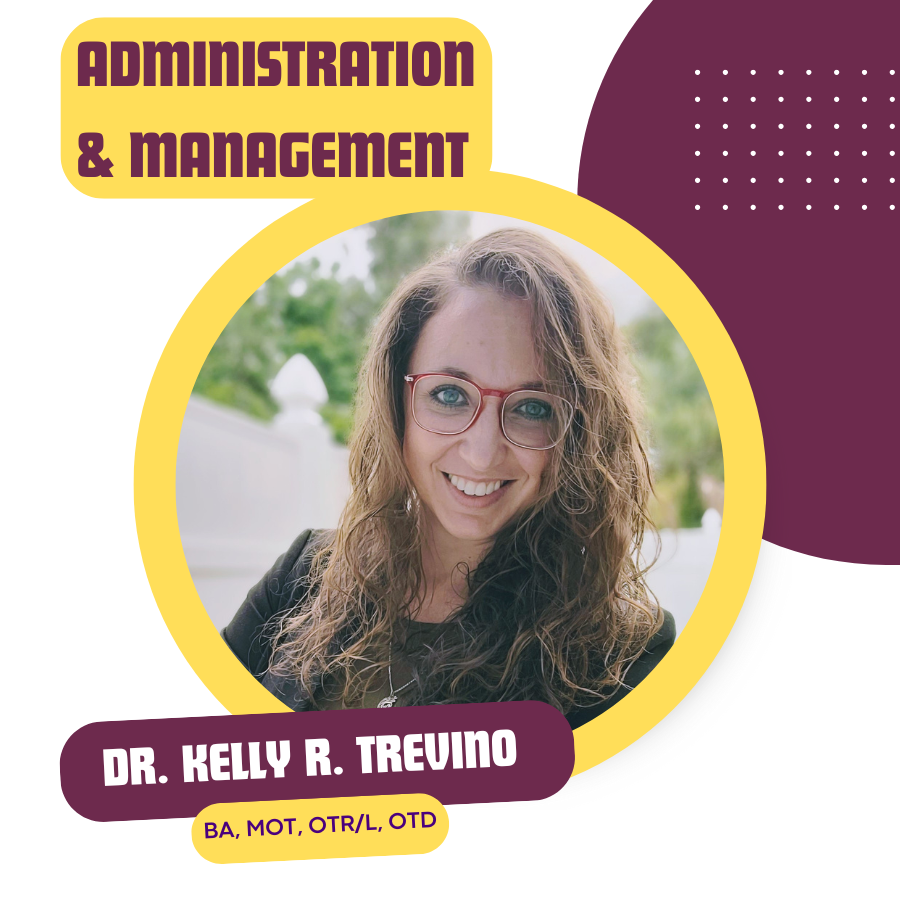 How Occupational Therapy Practitioners Can (and Should) Add to the Administrative Team
How Occupational Therapy Practitioners Can (and Should) Add to the Administrative Team
Dr. Kelly R. Trevino BA, MOT, OTR/L, OTD
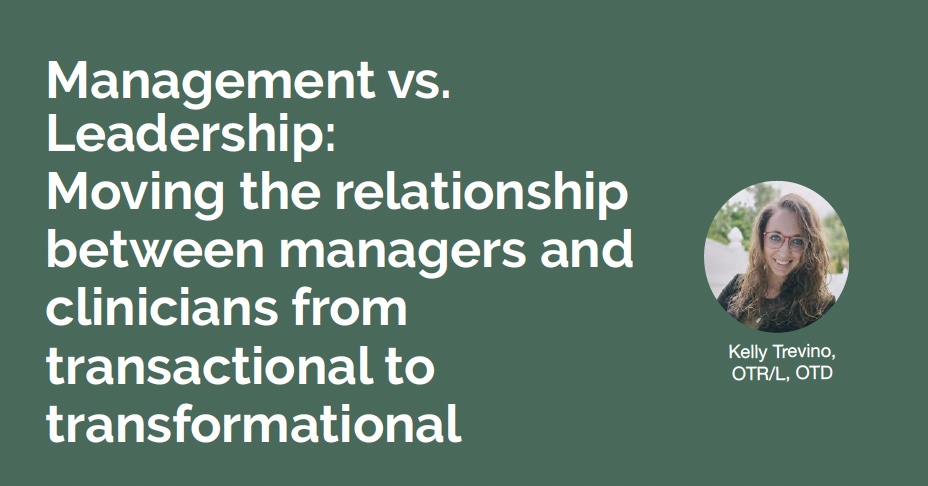
Holding a managerial position in a professional setting comes with a multitude of responsibilities. The skills required to successfully manage a group of professionals, large or small, are not skills that everyone possesses. With that being said, what constitutes a successful manager? What qualities make a manager the one who sticks out in your mind as someone who you looked to for guidance, or for whom you felt truly had your back? If you’re one who struggles to bring someone to mind, you’re not alone. This concept of a disconnect between management and staff has been a topic of discussion for decades. Research suggests that managers and practitioners have differing opinions about the performance of management, with management rating themselves significantly higher than their staff even though the only notable difference between the two groups is title (Brollier, 1985; Arroliga et al., 2014; Heard, 2014; Heard et al., 2018). The question to be posed then would be how can that gap be closed? Or at least lessened.

Virtual Reality in Occupational Therapy
By Jonathan E. Urrely, OT-S and Carlos Martoral
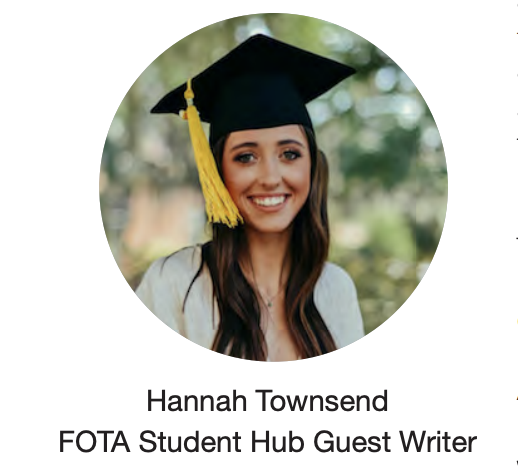
An others-oriented perspective is at the core of most occupational therapy practitioners. Occupational therapy (OT) is a holistic profession built on the ideals of being client centered and helping others live a life they deserve and value, which I believe is the reason many of us fell in love with the profession. Occupational therapists bring a unique, client-focused, occupation based, and holistic perspective to the table. With this viewpoint, we are given a responsibility to employ it in leadership, as it is increasingly valuable to healthcare as a whole.
Shirish Lala, EdD(c), MHS, OTR/L Academic Fieldwork Coordinator Daytona State College
The pursuit of acquiring literacy is intentional, purposeful, and deictic, and subject to change based on the contextual demands (Leu, Kinzer, Coiro, Castek, & Henry, 2013). Literacy can be loosely defined as a construct that provides an individual with the ability to read, write, and integrate information across a broad range of platforms in order to identify, recognize, and implement knowledge for the purpose of personal,social, or financial gain. The U.S. Department of Health and Human Services describes health literacy (HL) as “the degree to which individuals have the capacity to obtain, process, and understand basic health information and services needed to make appropriate health decisions” (National Network of Libraries of Medicine [NNLM], 2011). However, according to the Centers for Disease Control, low HL is a serious public health issue affecting nine out of every ten adults (Centers for Disease Control [CDC], 2018a). At least 50% of the adults without high school education are at risk for experiencing severe health crises including medication errors, increased hospital visits, higher mortality, and greater health expenditure as compared to those with adequate HL levels (Brach et al., 2012).
The Florida Occupational Therapy Association (FOTA) is proud to continue its service to members and consumers of OT during the 2021 Florida Legislative Session. Thus far we have spoken to at least eight different legislators directly involved in the examination and vetting of our proposed updates to the Occupational Therapy Scope of Practice (Scope). Your FOTA representatives have also met with other relevant stakeholders such as The Florida Board of OT and the Florida Department of Health to solicit feedback and support of these essential updates to our Scope.
Now it’s your turn!
By: Michael Steinhauer OTR, MPH, FAOTA
FOTA SIS Administration & Management Chair (Modified from Matt Cornner, Managing Director, Talent Development Solutions, Advisory.com)
Manualization of an intervention is an essential component in the implementation of research studies. When collaborating on research teams, manualization gives a template to check for fidelity and thus determine if the intervention is carried out in the way in which it was intended by the program developers. Murphy and Gutman (2012) have outlined essential elements in intervention fidelity that are often absent from study descriptions. For example, within the intervention manual researchers should describe the intervention design to include the number, length, and frequency of intervention sessions. The researchers should explain both the theoretical framework and any clinical guidelines that provided the foundation for the intervention. The manual must also define the “active ingredients” or elements of the intervention proven to be responsible for changes in specific outcomes, often quite complex in intervention research. Careful consideration must be given to the training of individuals who will be implementing the study’s procedures. Implementation training is not only outlined in the manual, but the manual content can also be used for training purposes. Written/electronic intervention manuals can be an important tool to assist in fidelity as they provide a means to articulate the distinct differences of the intervention and ensure outcomes are replicated.
By: Kim Dudzinsk MS, OTR/L & Angela Sampson OTR/L
The world has become a global society with the ability to achieve an interconnected community. The problem is the world has a global view without global support. Resources are available yet avenues to bring resources abroad in a safe, effective way are scarce. Third world nations, also known as majority world nations or developing world nations, have deficits in care, education, and equipment. Occupational rights are such an integral part of American and European society that the Office of Public Sector Information and the United States Department of Justice have put laws in place for people with disabilities guaranteeing equal access to education, employment, and public buildings and activities. Developed nations have funding that support large amounts of rehabilitation research, development of technology that support mobility, cognition, and sensory while health as a right is very difficult for marginalized populations. Inequitable distribution of health opportunities globally is a major factor in health deficits. It is a joint responsibility of both domestic and external governments to fulfill health rights of majority world citizens (Barugahare & Lie, 2016; Reynolds, 2010). There is a lack of awareness of this need, lack of therapists available to provide services, and lack of safe, economical methods to bring relief to these countries.
The Florida Occupational Therapy Association (FOTA) is an all volunteer organization with the exception of one paid employee. That one employee, which many of you who have contacted the organization already know, is named Janine. She is fantastic at what she does for the organization, handling many of the day to day tasks that administratively need to be addressed. FOTA proudly represents the interest of over 16,000+ occupational therapy practitioners (occupational therapists, occupational therapy assistants, and students). Currently, membership in our organization is approximately 1,000 total members, with half of those members being students (our future practitioners). Of the 500 approximate practitioners, we have 50 or so practitioners who are tasked with running the organization and the scope of its reach. So, you might ask, why all the honesty? Because FOTA believes in transparency and we feel it is important you know who we are and what we do. We also need to be honest in expressing how necessary you are to that definition, as we are all simultaneously co-evolving.
Amazon searches starting from www.flota.org benefit FOTA!